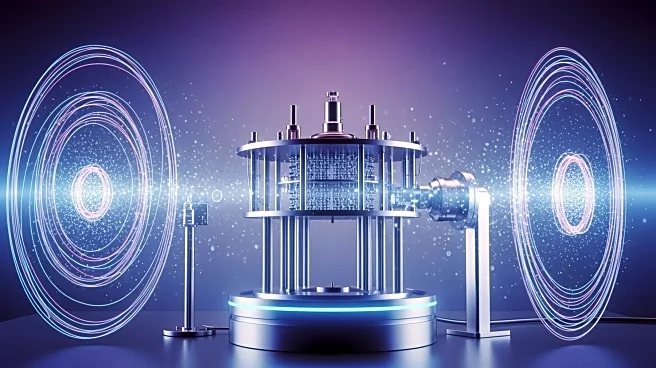What's Happening?
Researchers are exploring the use of ultracold atoms confined in optical 'Ferris wheels' to test aspects of Einstein's theory of relativity on a quantum scale. This innovative approach could reveal how
quantum physics alters time, providing new insights into relativistic effects at unprecedentedly small scales. The study focuses on nitrogen molecules, using their electron motion as an internal clock to detect shifts in ticking frequency.
Why It's Important?
Testing relativity in the quantum realm could deepen our understanding of fundamental physics, potentially leading to breakthroughs in quantum mechanics and relativity. This research may challenge existing theories and open new avenues for scientific exploration, impacting fields such as quantum computing and atomic clock technology.
What's Next?
Further experiments with optical Ferris wheels are needed to validate the theoretical predictions and explore potential new effects. Researchers aim to refine the technology and address technical challenges, such as maintaining ultracold conditions during experiments.
Beyond the Headlines
The study highlights the importance of revisiting established scientific theories in new contexts, which can lead to unexpected discoveries and advancements in our understanding of the universe.









